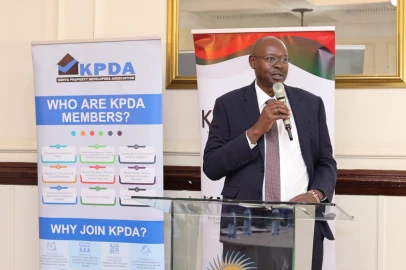C
Citizen Reporter
Guest
doctype html>

The Kenya Property Developers Association (KPDA) has signed a memorandum of understanding (MoU) with the Kenya National Chamber of Commerce and Industry (KNCCI) in a partnership designed to unlock new financing models and accelerate delivery of affordable housing in Kenya.
The collaboration is expected to combine KPDA’s technical expertise and industry insights with KNCCI’s nationwide reach and policy advocacy capacity.
By working together, the two bodies aim to streamline approval processes, push for consistent housing policies, and create an investment-friendly environment for real estate development.
Kenya’s real estate sector currently contributes about 10% of the country’s GDP, making it one of the fastest-growing industries in the region. According to KNCCI, 22% of Kenyans live in urban areas, with the urban population expanding by 4.2% annually. Nairobi has already emerged among the top five fastest-growing real estate markets in Africa.
Yet the country faces a significant housing shortfall. Kenya requires approximately 200,000 new units annually but produces only 50,000, leaving a deficit of 150,000 homes each year. This imbalance has driven housing prices up by nearly 100% since 2004.
KNCCI President Dr. Eric Rutto noted that scaling up construction would not only address housing needs but also generate critical revenue and jobs.
He further highlighted that while demand for office and retail space continues to evolve—driven by Nairobi’s role as a regional hub for banks, multinationals, and tech firms—oversupply in the high-end office market is prompting a shift toward flexible leasing terms and co-working spaces.
Retail space, anchored by malls such as Two Rivers, Westgate, Garden City, and Sarit Centre, continues to expand, while growth in e-commerce and manufacturing is fueling demand for modern warehouses and logistics hubs in areas such as Athi River, Tatu City, Ruiru, and Naivasha, supported by major infrastructure investments like the Standard Gauge Railway and the Nairobi Expressway.
©Citizen Digital, Kenya
Continue reading...
The collaboration is expected to combine KPDA’s technical expertise and industry insights with KNCCI’s nationwide reach and policy advocacy capacity.

The Kenya Property Developers Association (KPDA) has signed a memorandum of understanding (MoU) with the Kenya National Chamber of Commerce and Industry (KNCCI) in a partnership designed to unlock new financing models and accelerate delivery of affordable housing in Kenya.
The collaboration is expected to combine KPDA’s technical expertise and industry insights with KNCCI’s nationwide reach and policy advocacy capacity.
By working together, the two bodies aim to streamline approval processes, push for consistent housing policies, and create an investment-friendly environment for real estate development.
“From streamlining approval processes, advocating for consistent policies, and creating a stable environment that attracts investment, we will move from fragmented requests to coordinated advocacy,” said KPDA Chairman Ken Luusa.
Kenya’s real estate sector currently contributes about 10% of the country’s GDP, making it one of the fastest-growing industries in the region. According to KNCCI, 22% of Kenyans live in urban areas, with the urban population expanding by 4.2% annually. Nairobi has already emerged among the top five fastest-growing real estate markets in Africa.
Yet the country faces a significant housing shortfall. Kenya requires approximately 200,000 new units annually but produces only 50,000, leaving a deficit of 150,000 homes each year. This imbalance has driven housing prices up by nearly 100% since 2004.
KNCCI President Dr. Eric Rutto noted that scaling up construction would not only address housing needs but also generate critical revenue and jobs.
“Construction of housing is labor intensive, leading to job creation. It is estimated that for every unit constructed, 3–5 new jobs are created,” said Dr. Rutto.
He further highlighted that while demand for office and retail space continues to evolve—driven by Nairobi’s role as a regional hub for banks, multinationals, and tech firms—oversupply in the high-end office market is prompting a shift toward flexible leasing terms and co-working spaces.
Retail space, anchored by malls such as Two Rivers, Westgate, Garden City, and Sarit Centre, continues to expand, while growth in e-commerce and manufacturing is fueling demand for modern warehouses and logistics hubs in areas such as Athi River, Tatu City, Ruiru, and Naivasha, supported by major infrastructure investments like the Standard Gauge Railway and the Nairobi Expressway.
©Citizen Digital, Kenya
Continue reading...

